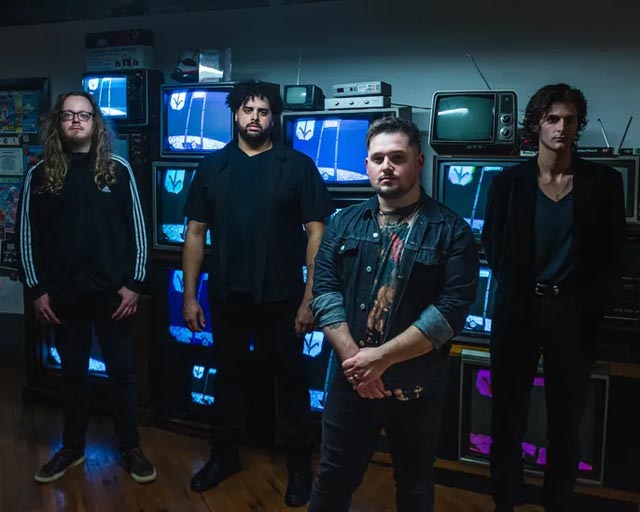The music industry is notoriously challenging, with many artists juggling day jobs or multiple jobs while pursuing their passion. Similarly, publications like Metal Insider work tirelessly, often holding down full-time jobs, if not multiple jobs, battling time management, and making numerous sacrifices to promote heavy music. Both artists who create the music and music journalists who keep it relevant by writing about new releases share the dedication to keep the heavy music scene alive, continually promoting it to new and veteran listeners alike. Metal Insider introduces a new guest column where artists share their experiences balancing day jobs with their musical careers. The first guest is Sofia Frasz of Exiled Hope.
My name is Sofia, and I am the sole instrumentalist and vocalist for my blackened power metal project, Exiled Hope. I have a couple of different day jobs: I am a law student intending to practice music/intellectual property law when I graduate. I also work part-time as a law clerk with a law firm that specializes in music law, and as a publicist and seminar coordinator with C Squared Music Marketing. Working in music-adjacent jobs while in school or while building up your music career is crucial for making connections, getting valuable hands-on experience that can be transferred to your music career, and for earning extra income.
I don’t know how it works with other graduate programs, but the practice of law and the study of law at law school are radically different from each other. I’ve often said legal education should be treated more like a skilled trade or apprenticeship-based field than like academia, because as a law student, you will learn so much through working at a law firm that you will not learn just by focusing on classes and extracurriculars. Because of this, I’m very happy to be able to work part-time to gain a deeper understanding of my niche in the field and to become more helpful to future clients as a result. Music law is a niche within a niche: it requires knowledge of contract, copyright, trademark, and often business law, and the ability to apply that knowledge to specific areas of the music industry. I’ve gained experience with reviewing record deals, filing trademark applications, drafting producer agreements, dealing with the pre-litigation elements of copyright infringement cases, and many other aspects of music law. This experience has been invaluable to my own music career, and I look forward to using it to help other artists when I become a lawyer.
Regarding C Squared, I am currently only able to work as a publicist during the summer because school and the law firm get so busy, but I am very excited to continue my work with them through August and then pick it back up once I graduate and get my bar license. PR is a lot of fun because the skills involved and the writing style are completely different from the skills I use for law-related work, so I feel like I get to use different sides of my brain depending on the projects I have for the day. Working in PR keeps me connected to the creative side of the music industry and has taught me valuable skills for marketing my own music. If I had known that music PR was a career option in college, I would certainly have tried to get established in it earlier, because it requires me to draw upon what I feel like are my most natural talents: creative writing and networking.
In summary, my day jobs are related to music, but they’re different enough that they keep music fun for me. Music is more than a hobby, but my income and overall stability are not riding on it, so I have plenty of flexibility with how I approach it.













